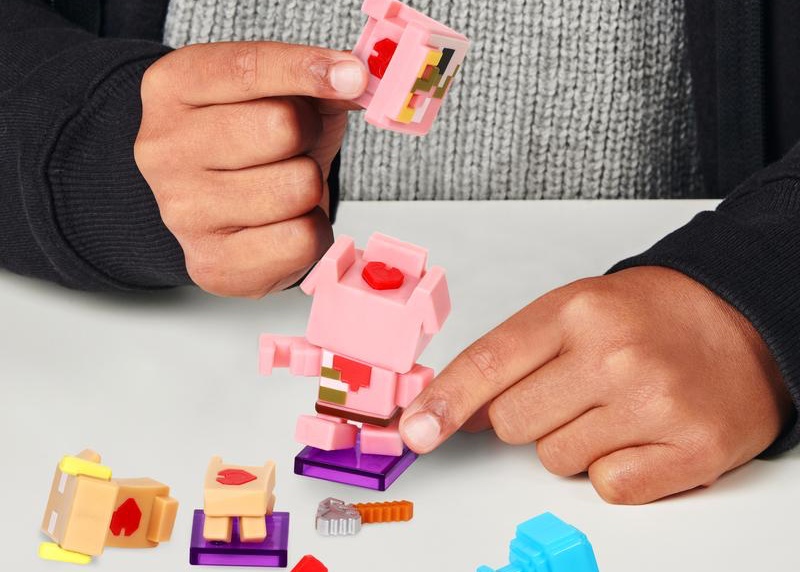
Exploring different types of play is critical to developing and improving a large array of important skills in children. But, did you also know that play can bring kids together, bridge generational gaps, and help children learn empathy and compassion? Plus, playtime makes life lessons and family time fun! Come explore the four most common types of play and the many benefits they offer.
Different Types of Play and Their Benefits
Kids are able to build upon numerous skills by learning through play, for instance, creative skills, social skills, motor skills, communication skills, etc. All of these skills are essential for a healthy mind. Here are a few different types of play that focus on child development.
1. Toys and Object Play
Children are curious, and they have the ability to solve puzzles, think up hilarious scenarios for action figures, and showcase their caretaker skills with dolls. By introducing a child to a wide array of toys, they can learn to use their observational and developing reasoning skills to figure out what to do with each toy sparking creativity and communication as they play. Moreover playing with toys and objects improves problem-solving skills as they come across perplexing social situations that can be acted out through role-playing with toys or learn cause and effect with DIY crafting kits.
While toys, games, and DIY crafts can teach children many of the fundamental skills they will use throughout their lives, they can also provide an excellent opportunity to build trust and strengthen family bonding. By playing with toys, multiple generations can come together to learn about one another and create lasting memories to cherish.
Examples of benefits children and their families receive from playing with toys:
- Develop gross and fine motor skills
- Improved cognitive abilities
- Enhance problem-solving skills
- Learn cause and effect
- Bonding time with grown-ups
2. Physical Play
Motor skills are essential for child development and to develop future learning skills. Engaging in physical play like jumping, running, or climbing is an excellent way to improve the physical abilities of a child. Physical activity is essential for people of all ages, and healthy physical play ensures that a child is developing in a healthy way.
Examples of benefits children receive from engaging in physical play:
- Improve motor skills
- Develop stronger muscles
- Strengthen bones
- Promote health and fitness
- Improve balance
- Enhances brain development
3. Outdoor Play
Kids these days often spend more time on cell phones, tablets, computers, and video gaming devices and less time playing outside than previous generations. However, playing outdoors can offer several benefits that can be important to childhood development. For instance, outdoor play is an excellent way to allow children a chance to get close up with nature, explore hands-on science facts, develop a better understanding of textures, patterns, and colors, and, of course, breathe in some fresh air to improve their health.
Children also learn to be more responsible for protecting and caring for their environment so that they can continue to have a safe and exciting area to enjoy. Pus, by providing children with more knowledge of the outdoors through playtime fun, they can explore, observe, and gain a better understanding of how outdoor games and even toy playtime can be more exciting when combined with ample room to move.
Examples of benefits children receive from outdoor play:
- Engage in a healthy physical activity
- Improve gross and fine motor skills
- Improve physical and mental health
- Enhance observational skills
- Appreciate their surroundings
- Develop sensory skills
- Improve communication skills
4. Pretend Play
Make-believe is one of the best forms of play for brain development. It helps the child open up their mind and think outside the box. A child’s mind is full of thoughts and observations, and through pretend play, they can explore the world in their own unique way. Furthermore, it helps them build upon their creative skills and engage with others in a healthy way.
For parents, teachers, and therapists, children can use pretend play with toys to display emotions or feelings that have been bothering them that are difficult or intimidating to convey in direct conversation. Moreover, make-believe play helps improve a child's thinking process and cognitive abilities. Pretend play ensures that their problem-solving abilities are not limited by what they have been taught so that increasingly complex problems they encounter in the future can have more innovative and possibly simpler or more effective solutions.
Examples of benefits children receive from pretend play:
- Encourages imagination and creativity
- Enhances social development
- Develops learning abilities
- Improves ability to identify problems and find their solution
- Supports emotional development
- Enhances language and communication skills
Play is a Critical Part of Childhood Development
Playtime is crucial for proper growth and discovery. It is equally important to engage in different types of play that may be combined, such as toy and object play with outdoor play or pretend play. Each type of play performs an essential role in childhood learning and relationship development. They also help children build upon various skills to ensure a healthy mind, create trust, and explore social scenarios. With such a foundation, children can have the tools and resources to go beyond classroom learning and thrive!
